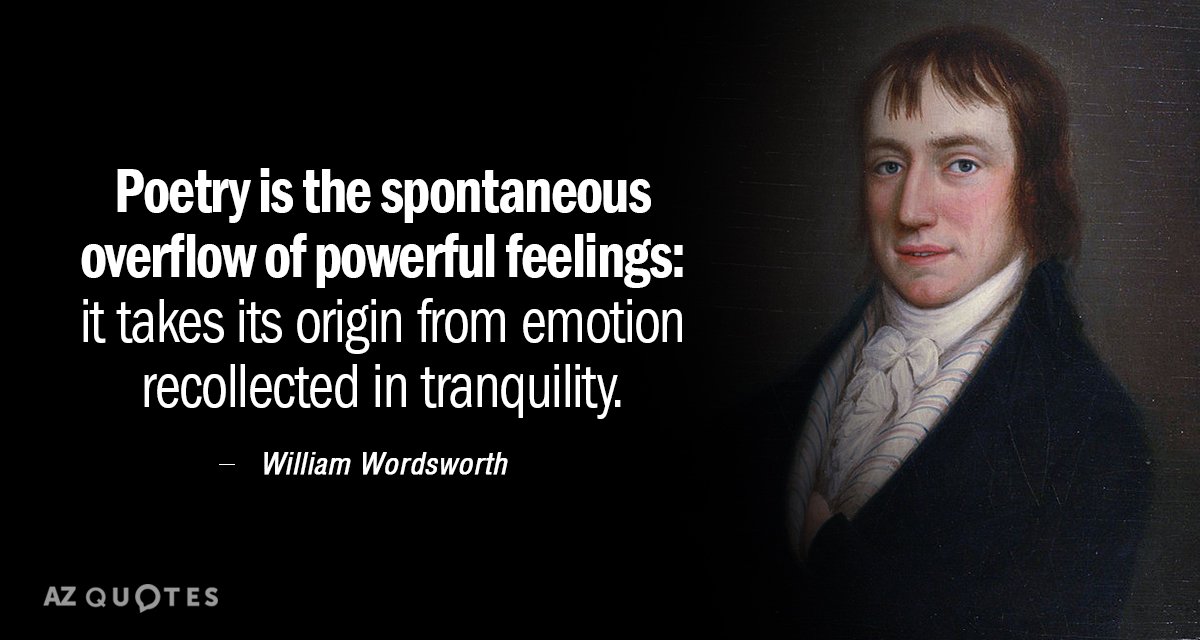
Nature has the power to shape and mold a person by such "interventions," as the mature poet calls them. In the first Book of The Prelude, the poet as a young boy steals a boat but soon falls into terror when the high crags around the lake seem to come to life and pursue him, "like a living thing." The boy is terrified and keeps the image with him into adulthood. Furthermore, not all in nature is immediately good or beneficent, as fear is a constant presence in life for him. The emotions and feelings caused by interaction with nature are his primary emphasis. The epic poem The Prelude explores in thousands of lines the changing tides of nature upon a person, from youthful exaltation to the adult fears of the loss of powers and alienation from the natural world of God.įew precise descriptions of the earth itself, or flora and fauna, are found in Wordsworth's poems.

The child open to nature in fact is the "father of the Man," as the poem says-one of Wordsworth's most important statements on the power of immediate impression and reaction to nature throughout one's life. Readers see this in "My Heart Leaps Up," which tells of the joy brought to a young child at the sight of a rainbow, a joy he will try to recapture and keep in his maturity. Nature's influences begin in early childhood, when there are the fewest obstacles to receiving impressions. Nature was not picturesque to him in precise terms, but as a great entity that helped shape and form people's lives.

He did not go to nature to find specific, striking impressions for the sake of novelty, as poets of the century before him often did. Wordsworth expressed deep connections with nature-a word he personified by capitalizing it-in many of his works.


 0 kommentar(er)
0 kommentar(er)
